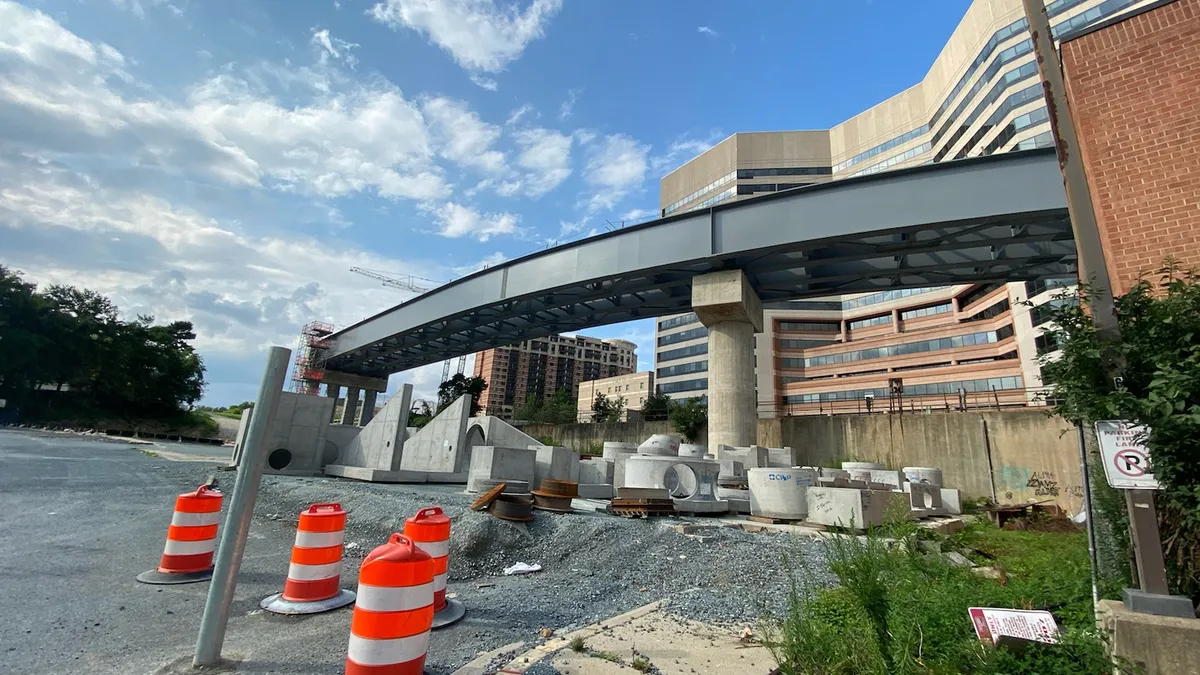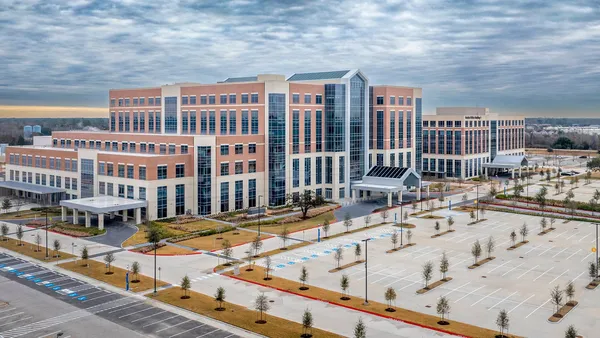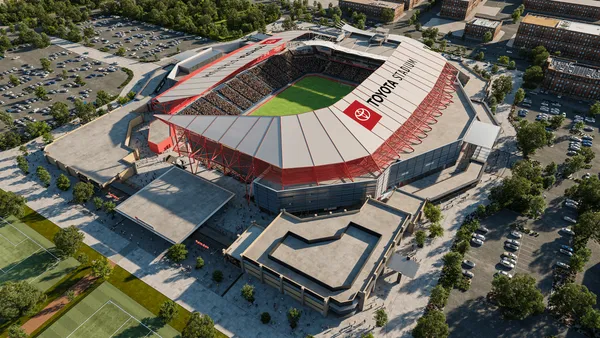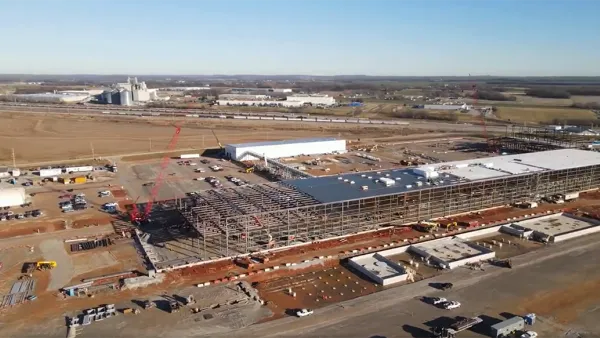UPDATE: Sept. 11, 2020: Baltimore Circuit Court Judge Jeffrey M. Geller has ruled that the companies managing the construction of the Purple Line are allowed to quit due to disputes with the state concerning $800 million in unpaid cost overruns, The Washington Post reported. If the companies pull out, the state will need to find a new path to completion.
Per the decision, the Maryland Transit Administration (MTA) can still attempt to reach a settlement on the cost overruns to save the partnership with Purple Line Transit Partners (PLTP). The ruling, made yesterday, comes after three years of failed negotiations between the parties.
Maryland transit officials have vowed to continue the project, but a PLTP pullout would likely add one to two years to the expected completion date, the Post reported. Originally, the goal was to have the Purple Line connecting major suburbs of Washington, D.C., in Montgomery and Prince George's Counties in March 2022.
PLTP said they remain open to negotiations with the state, if Maryland engages in “meaningful settlement discussions."
UPDATE: Aug. 12, 2020: A Baltimore Circuit Court judge has issued a temporary restraining order (TRO) against Purple Line Transit Partners LLC (PLTP), preventing them from stopping work on the Purple Line light rail public-private partnership (P3) near Washington, D.C. The Maryland Transit Administration brought the action against PLTP.
On Aug. 10, Judge Jeffrey Geller ordered that PLTP not "demobilize or abandon" the project until it has been established through the dispute resolution provisions of the P3 contract whether the extended delay that PLTP has claimed actually exists. The TRO expires on Sept. 14.
The MTA, according to The Washington Post, is suing PLTP for breach of contract, alleging that the consortium is threatening to illegally walk off the job on Aug. 22 if the two can't reach an agreement on $755 million of cost overruns that PLTP claims remain unpaid.
The MTA maintains that PLTP was starting to dismantle a large crane, according to the Post, which would take up to one year to replace, and that the electricity was being turned off at a project facility, which could result in millions of dollars of damage to the equipment inside. The state is also asking the court to fine PLTP $75,000 for starting to demobilize and trying to terminate the P3.
Dive Brief:
- Maryland transit officials will take over management of the $5.6 billion Purple Line public-private partnership (P3) if feuding parties can’t come to an agreement on hundreds of millions in cost overruns, the Maryland Transit Administration (MTA) warned in a letter to the project concessionaire.
- “This letter is to inform you that MTA intends to exercise its step-in rights under the P3 Agreement and the Design-Build Contract to safeguard the Project and to prevent a work stoppage pending resolution of the parties’ disputes and/or until the Project lenders take possession, custody and control of the Project,” the MTA said in its letter to the 171 companies involved in the consortium.
- If the MTA steps in, it would manage all contracts on the project so that construction on the transit project near Washington, D.C., could continue while the state “pursues its rights and remedies against” Purple Line Transit Partners (PLTP), the project concessionaire.
Dive Insight:
“Our focus is on ensuring the Purple Line gets completed,” said Erin Henson, director of the office of public affairs for the Maryland Department of Transportation (MDOT), in a statement emailed to Construction Dive. “Even as settlement discussions continue, the state has to protect its interests and be ready for any and all scenarios on how we deliver the project.”
The private consortium and the MTA need to agree on who will pay $755 million in reported overruns caused by more than two years of delays by Aug. 22. The consortium has said it will terminate the $5.6 billion partnership unless the state pays for the overruns.
The conflict between the state and the consortium stems from a three-year disagreement on the 16-mile, 21-stop light rail project connecting the Maryland suburbs of Washington, D.C.
On June 23, PLTP notified MTA and MDOT that it intended to terminate the partnership within 60 days, claiming that the project schedule had been delayed by 365 days or more at no fault of its own. But it also said it would explore a resolution with state officials and departments on the unreimbursed cost overruns.
The Purple Line Transit Constructors (PLTC), made up of Fluor, Lane Construction Corp. and Traylor Bros. Inc., announced in May that it was withdrawing from the project, saying that “the lack of meaningful resolution on the impacts of third-party lawsuits, delayed right-of-way acquisition and changes to regulations and third-party agreements” had made its participation unsustainable. Leaving the project reportedly cuts $1.2 billion from Fluor’s backlog.
The Purple Line project has been long plagued with problems, including cost overruns and activist lawsuits. Nevertheless, Maryland did not scuttle the P3 model, and in late May the PLTP said it would work with the state to find new contractors. That arrangement lasted only a month.
A deal is still possible, but both sides have prepared for contingencies if one isn’t reached. The state seems committed to completing the project, even at the cost of it becoming a cautionary tale for the future of P3s. The Purple Line has been a marquee initiative of Maryland Gov. Larry Hogan’s administration, which has touted private investment in public infrastructure.
“Both parties are still continuing discussions, and MDOT and MTA remain open to a fair and reasonable settlement,” Henson said. “There are some form of discussions almost daily.”













